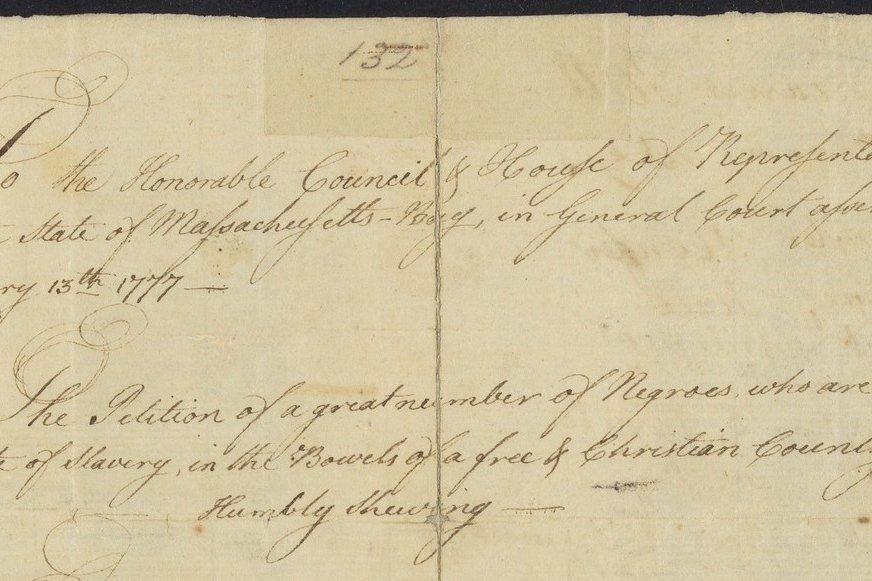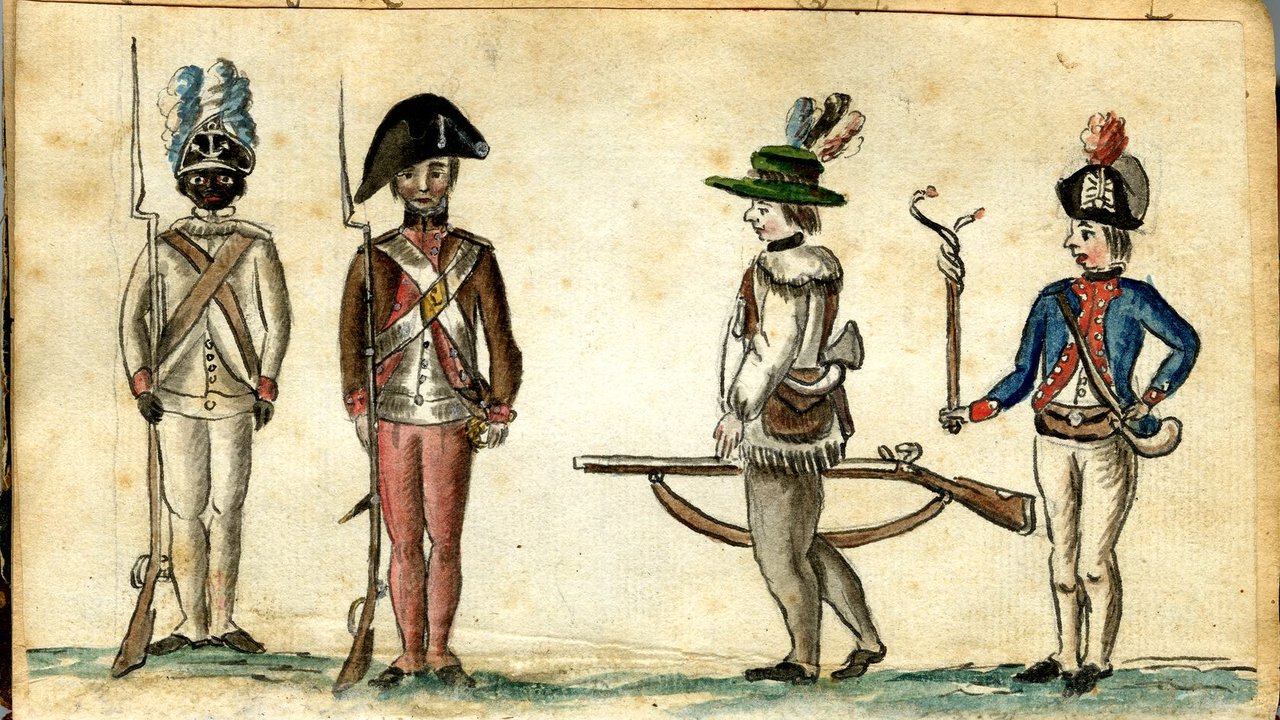
Petition From “A Great Number of Negroes” to the Massachusetts House of Representatives
The 1777 petition to the Massachusetts House of Representatives is like the petitions that came before it in many regards. What sets this petition apart, however, is that it was the first one submitted by Black Americans in Massachusetts following independence. The petitions sought to add the new revolutionary language and ideals that came about with independence. They used words and phrases that were in the Declaration of Independence and were able to add yet another layer to the contradictions of Revolutionary-era ideology. If America could not only fight for liberty, but now independence, then it had to do so for all Americans, including those who were enslaved.1
To the Honorable Council and House of Representatives for the State of Massachusetts-Bay in General Court assembled January 13th[,] 1777.
The Petition of a great number of Negroes who are detained in a state of Slavery in the Bowels of a free and Christian Country Humbly Shewing:
That your Petitioners apprehend that they have, in common with all other Men, a natural and unalienable right to that freedom, which the great Parent of the Universe hath bestowed equally on all Mankind, and which they have never forfeited by any compact or agreement whatever—But they were unjustly dragged, by the cruel hand of Power, from their dearest friends, and some of them even torn from the embraces of their tender Parents, from a populous, pleasant and plentiful Country—and in Violation of the Laws of Nature and of Nation and in defiance of all the tender feelings of humanity, brought hither to be sold like Beasts of Burden, and like them condemned to slavery for Life—Among a People professing the mild Religion of Jesus—A People not insensible of the sweets of rational freedom—Nor without spirit to resent the unjust endeavors of others to reduce them to a State of Bondage and Subjection.
Your Honors need not to be informed that a Life of Slavery, like that of your petitioners, deprived of every social privilege, of every thing requisite to render Life even tolerable, is far worse than Non-Existence—In imitation of the laudable example of the good People of these States, your Petitioners have long and patiently waited the event of Petition after Petition by them presented to the legislative Body of this State, and can not but with grief reflect that their success has been but too similar.
They can not but express their astonishment, that it has never been considered, that every principle from which America has acted in the course of her unhappy difficulties with Great-Britain, pleads stronger than a thousand arguments in favor of your Petitioners.
They therefore humbly beseech your Honors, to give this Petition its due weight and consideration, and cause an Act of the Legislature to be passed, whereby they may be restored to the enjoyment of that freedom which is the natural right of all Men—and their Children (who were born in this Land of Liberty) may not be held as Slaves after they arrive at the age of twenty one years.
So may the Inhabitants of this State (no longer chargeable with the inconsistency of acting, themselves, the pan which they condemn and oppose in others) be prospered in their present glorious struggles for liberty; and have those blessings secured to them by Heaven, of which benevolent minds can not wish to deprive their fellow Men.
And your Petitioners, as in Duty Bound shall ever pray.
Black Americans and the American Revolution
By the time of the American Revolution, there was a sizable Black population in the colonies. Black Americans were involved in several ways, and witnessing the revolution around them was just one such way.
As witnesses to a unique time in history, Black Americans offered their own opinions and observations of the events around them. For some, this proved crucial in finding and fighting for freedom. For others, this meant they could contribute their own opinions to the chorus of revolutionary-era rhetoric.

Sources
- Grant Stanton, “The Freedom Petitions: Black Patriotism, Black Politics, and the Abolition of Slavery in Massachusetts, 1773-1783,” Early American Studies: An Interdisciplinary Journal 22, No. 2 (Spring 2024), 295–97.
